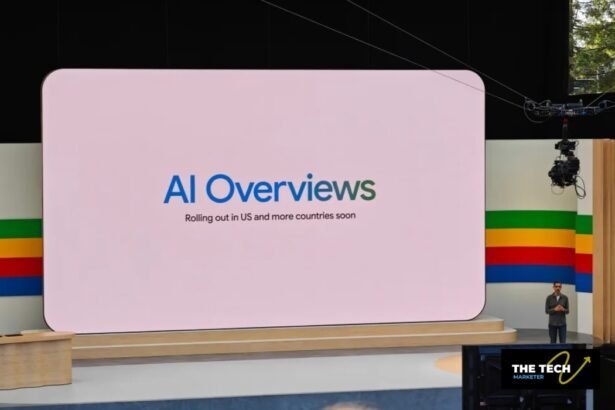New Update: Google’s New AI Overviews Are Changing the Way We Search Online.
Google’s recent introduction of AI-powered overviews in U.S. search results marks a significant shift in the way we approach SEO. This innovation, driven by Google’s Gemini model, is designed to handle complex queries through multi-step reasoning, providing detailed and structured answers. As businesses and SEO professionals, understanding and leveraging this new feature can offer a competitive edge.
What Are AI-Powered Overviews?
AI-powered overviews are designed to provide comprehensive and detailed responses to user queries. Unlike traditional search results, which often present a list of links, AI overviews aim to synthesize information from multiple sources into a cohesive summary. This feature is particularly useful for complex queries that require multi-step reasoning, such as planning a vacation or preparing a detailed project report.
Key Features of AI-Powered Overviews
- Detailed Summaries: AI-powered overviews break down complex information into digestible parts. For instance, if a user searches for vacation planning tips, the AI can provide a step-by-step guide, including budget planning, destination suggestions, and packing lists.
- Visual Search Integration: The AI can pull in relevant images and videos, enhancing the user experience by providing visual context to the information. This feature is particularly beneficial for searches related to DIY projects, cooking, and travel.
- Organized Search Results: Search results are grouped under unique headlines that are directly relevant to the user’s query. This organization helps users find the information they need more quickly and efficiently.
- Planning Tools: For tasks like meal prep, vacation planning, or project management, the AI can offer tailored suggestions and checklists, helping users organize their tasks effectively.
Implications for SEO
The introduction of AI-powered overviews necessitates a shift in SEO strategies. Here are some key considerations for optimizing content in this new landscape:
- Focus on Question-Based Content: Structure your content to address specific questions that users are likely to ask. This approach aligns with the AI’s method of breaking down complex queries into simpler components.
- Comprehensive Topic Pages: Create in-depth pages that cover all aspects of a particular topic. The more detailed and comprehensive your content, the more likely it is to be featured in AI overviews.
- Improve Technical SEO: Ensure that your website’s technical SEO is up to date. This includes optimizing page speed, mobile-friendliness, and ensuring that your site is easily crawlable by search engines.
- Leverage Schema Markup: Implementing schema markup can help search engines understand the structure of your content, increasing the likelihood of being featured in AI overviews.
Practical Steps to Optimize for AI-Powered Overviews
- Identify Common Queries: Use tools like Google’s Keyword Planner and AnswerThePublic to identify common questions related to your industry. Create content that addresses these queries in a detailed and structured manner.
- Use Clear Headings and Subheadings: Organize your content with clear headings and subheadings that reflect the questions being answered. This not only improves readability but also helps search engines understand the structure of your content.
- Incorporate Visuals: Enhance your content with relevant images, infographics, and videos. Visual content can make your pages more engaging and increase the chances of being included in AI overviews.
- Update and Expand Existing Content: Regularly review and update your existing content to ensure it remains relevant and comprehensive. Expanding on older posts with new information can help them perform better in search results.
Case Study: AI-Powered Overviews in Action
Let’s consider a practical example. Suppose you run a travel blog and want to optimize for the query “How to plan a trip to Europe.” Here’s how you can structure your content:
- Introduction: Briefly introduce the topic and explain what the post will cover.
- Step-by-Step Guide: Break down the planning process into clear steps, such as deciding on destinations, budgeting, booking flights and accommodation, and creating an itinerary.
- Visuals and Checklists: Include maps, images of popular destinations, and downloadable checklists to help users organize their trip.
- Expert Tips: Provide additional tips from travel experts or frequent travelers to add value to your content.
- Links to Related Content: Include links to other relevant posts on your blog, such as packing tips, best travel apps, and city guides.
Future Trends in AI and SEO
As AI technology continues to evolve, we can expect further changes in how search engines process and present information. Here are some trends to watch:
- Personalization: AI will become more adept at personalizing search results based on individual user preferences and behaviors. Tailoring your content to specific audience segments can help you stay ahead.
- Voice Search Optimization: With the rise of voice assistants, optimizing content for voice search will become increasingly important. Focus on natural language and conversational keywords to capture voice search traffic.
- Interactive Content: AI advancements may lead to more interactive and dynamic content in search results. Consider incorporating interactive elements, such as quizzes and calculators, into your content strategy.
Conclusion
Google’s AI-powered overviews represent a significant advancement in search technology, offering more detailed and organized information to users. For businesses and SEO professionals, this shift presents both challenges and opportunities. By understanding the mechanics of AI overviews and adapting your content strategy accordingly, you can enhance your visibility in search results and provide greater value to your audience.
Embrace this change as an opportunity to refine your SEO practices and stay ahead in the ever-evolving digital landscape. The future of search is here, and it’s powered by AI.









